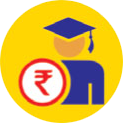B.Tech. Program
The B.Tech. Program is a four-year, eight-semester, full-time, campus-based program. The Program provides cutting edge education to equip students with comprehensive and critical understanding in various branches of engineering.
The following branches of engineering are offered:
Eligibility

- Pass with 45% (40% for ST/SC/OBC candidates) and above aggregate marks in Class XII (or its equivalent) with Mathematics, Physics, Chemistry and English as subjects.
- Class XII (or its equivalent) students awaiting final examination results may also apply.
- Applicants should have completed 12 years of formal schooling in order to apply for the program. Admission will be offered based on scores secured in IUTAT 2024/ JEE (Main) 2024 / TBJEE/ Other State/ National Level Engineering Entrance Tests (2024).
Eligibility for B.Tech (Lateral Entry)

- Pass in 3-year diploma course in respective branch of engineering with at least 45% marks in aggregate.
- Final year students awaiting results can also apply. Students will be admitted directly into 2nd year of B.Tech Program. Students in their final year of Diploma may also apply.
Merit Scholarships

Merit Scholarship is offered to students pursuing B.Tech, B.Tech (L), BCA, Integrated MCA and MCA Programs. These Scholarships are based on ranks achieved in IUTAT 2024 or TBJEE 2024 or JEE Mains 2024 and semester wise performance during the respective programs.

B.Tech Program Structure
The four-year B.Tech. Program is organized into eight semesters, as given below:
| Semester - I | Semester - II | |
|---|---|---|
| YEAR I |
|
|
| Semester - III | Semester - IV | |
| YEAR II |
|
|
| (Summer Term) Internship Program - I | ||
| Semester - V | Semester - VI | |
| YEAR III |
|
|
| (Summer Term) Internship Program - II | ||
| Semester - VII | Semester - VIII | |
| YEAR IV |
|
|
Note: The program structure may change marginally. The specific details will be given in the Student Handbook.
| Semester - I | Semester - II | |
|---|---|---|
| YEAR I |
|
|
| Semester - III | Semester - IV | |
| YEAR II |
|
|
| (Summer Term) Internship Program - I | ||
| Semester - V | Semester - VI | |
| YEAR III |
|
|
| (Summer Term) Internship Program - II | ||
| Semester - VII | Semester - VIII | |
| YEAR IV |
|
|
Note: The program structure may change marginally. The specific details will be given in the Student Handbook.
| Semester - I | Semester - II | |
|---|---|---|
| YEAR I |
|
|
| Semester - III | Semester - IV | |
| YEAR II |
|
|
| (Summer Term) Internship Program - I | ||
| Semester - V | Semester - VI | |
| YEAR III |
|
|
| (Summer Term) Internship Program - II | ||
| Semester - VII | Semester - VIII | |
| YEAR IV |
|
|
Note: The program structure may change marginally. The specific details will be given in the Student Handbook.
| Semester - I | Semester - II | |
|---|---|---|
| YEAR I |
|
|
| Semester - III | Semester - IV | |
| YEAR II |
|
|
| (Summer Term) Internship Program - I | ||
| Semester - V | Semester - VI | |
| YEAR III |
|
|
| (Summer Term) Internship Program - II | ||
| Semester - VII | Semester - VIII | |
| YEAR IV |
|
|
Note: The program structure may change marginally. The specific details will be given in the Student Handbook.
| Semester - I | Semester - II | |
|---|---|---|
| YEAR I |
|
|
| Semester - III | Semester - IV | |
| YEAR II |
|
|
| (Summer Term) Internship Program - I | ||
| Semester - V | Semester - VI | |
| YEAR III |
|
|
| (Summer Term) Internship Program - II | ||
| Semester - VII | Semester - VIII | |
| YEAR IV |
|
|
Note: The program structure may change marginally. The specific details will be given in the Student Handbook.
Digital Humanities (Elective):
Common for all branches.
- Social Innovation
- Innovation & Entrepreneurship
- Al & Humanities
Program Elective-I
- Construction Planning and Management
- Analysis and Design of Shallow and Deep Foundation
- Finite Element Analysis
Program Elective-II
- Ground Improvement Techniques
- Urban Transport Planning
- Advanced Structural Analysis
Value Added course
- AUTOCAD for CAD Drawing
Program Elective-III
- Design of Hydraulic Structures
- Environmental Impact Assessment
- Pretested Concrete and Bridge Engineering
Open Elective-I
- Intelligent Transport Systems
- Infrastructure Financing
Open Elective-II
- Disaster Management And Mitigation
- Numerical Methods
Open Elective-III
- GIS and Remote Sensing
- Optimization Techniques
Audit Course
- Constitution of India
Digital Humanities (Elective)
Open Elective -I
- Advanced Java
- Advanced Computer Architecture
- Parallel Computing
- Block chain Technology
Open Elective -II
- Mobile Computing
- Wireless Networks
- AI in Wireless Communications
- Quantum Computing
Open Elective -III
- Soft Computing
- Ethical Hacking
- Information Security
- IoT Security
Program Elective -I
- Deep Learning
- Natural Language Processing
- Information retrieval
- Pattern Recognition
Program Elective -II
- Social Network Analysis
- Real Time Systems
- Human Computer Interface
- Combinotrial Optimization
Program Elective -III
- Software Testing Methodologies
- Service Oriented Architecture
- Software Defined Networking
- Distributed Computing
Audit Course
- Constitution of India
Value Added course
- Cloud Infrastructure and Services
Digital Humanities (Elective)
- Social Innovation
- Financial Data Analytics
- Innovation & Entrepreneurship
- Al and Humanities
Open Elective-I
- IC Applications
- Computer Networks
- Digital Systems
- Data Base Management Systems
- Operating Systems
Open Elective-II
- Digital Image Processing
- Advanced Control System
- Computer Vision
- Cloud Computing and Virtualization
- Soft Computing
Open Elective-III
- Optical Communications
- Renewable Energy
- Robotics and Robot Application
- Bio-Medical Electronics
- Instrumentation and Process Control
- Optimization Techniques
Program Elective-I
- Television Engineering
- Information Theory and Coding
- Sensors and Actuators
- Electrical and Electronic Measurements
- Autonomous Vehicles
Program Elective-II
- Antenna and wave propagation
- Radar Systems
- DSP Processors and Architecture
- Low power VLSI Design
- Telecom Switching Systems and Networks
Program Elective-III
- Mobile Communication
- Microcontrollers & Applications
- Power Electronics
- Smart Antennas for Mobile Communication
- Data compression and Encryption
Audit Course
- Constitution of India
- Introduction to Different Software Simulation and Programming Execution
Value Added course
Digital Humanities (Elective)
- Social Innovation
- Innovation & Entrepreneurship
- Al and Humanities
- Innovation & Entrepreneurship
Open Elective I
- Data Base Management Systems
- Electrical Energy Conservation and Auditing
- Computer Networks
- Operating Systems
- Analog and Digital Communication
- IC Applications
Open Elective II
- Soft Computing
- Antenna and wave propagation
- Digital Image Processing
- Radar System
- Wireless Communication Networks
- Design of Electrical Systems
- Embedded Systems
Open Elective III
Program Electives I
- Electric Design, Estimation and Costing
- Electrical Materials
- Line-Commutated and Active PWM Rectifiers
- Sensors and Actuators
Program Electives II
- Advanced Control System
- Electrical Machine Design
- VLSI Design
- Electric and Hybrid Vehicles
- HVDC Transmission and FACTS
Program Electives III
- Instrumentation and Process Control
- Power Systems Dynamics and Control
- Smart Grid Technology
- Optical Communications
Audit Course
- Constitution of India
Value Added course
- PV Power generator and Electric Vehicles
Digital Humanities (Elective)
- Social Innovation
- Innovation & Entrepreneurship
- Al and Humanities
Open Elective I
- Control Systems
- Automation and Robotics
- Operations Research
Open Elective II
- Quality assurance & Reliability
- Introduction to Nanotechnology
- Renewable Energy Sources
- Introduction to Tribology
Open Elective III
- Advances in Material Science
- Biomaterials
- 3D Printing and Design
Program Elective I
- Analysis and performance of fluid machines
- Power Plant Engineering
- Advanced Mechanics of Solids
Program Elective II
- Heat Engine and Refrigeration System
- Fracture Mechanics
- Computational Fluid Dynamics
- Mechatronics
Program Elective III
- Automotive Engineering
- Finite Element Methods
- Production planning and control
- Micro and Nano Manufacturing
Audit Course
- Constitution of India
Value Added course
- Renewable energy resources and waste energy reduction,
Admission Modalities
The Admission Modalities are with reference to the campus- based full time B.Tech, B.Tech (Lateral Entry), BCA, Integrated MCA, MCA and M.Tech Programs offered by The ICFAI University, Tripura at Agartala. The medium of instruction is English
Eligibility
- Pass in 10+2 with aggregate 45% (40% in case of ST, SC, OBC students) marks in Class XII examination or its equivalent with pass in each of the Mathematics, Physics, Chemistry and English subjects. 10+2 students awaiting their final examinations results can also apply.
- Students having required percentage of marks need to qualify in IUTAT 2024/JEE (Main) 2024, TBJEE 2024 or any other state government entrance examination to enrol in B.Tech Program.
- Pass in 3-year diploma course in respective branch of engineering with at least 45% (40 % in case of ST/ST/ OBC) marks in aggregate. Final year Diploma students awaiting results can also apply.
Final Year students who have not received the original certificates from the Universities/ Board by August 02, 2024 will be admitted provisionally. Their admission will be confirmed subject to their passing the qualifying examination and obtaining minimum specified marks. The registration of the applicants not meeting the criteria by October 31, 2024 will be cancelled. In such cases, admission fee will be forfeited and only 50% of the semester fee will be refunded after notifying the cancellation of the seat by the University.
The selection of applicants is made through screening of application and admission test. While evaluating applicants for admission, due weightage is given to their academic distinction, awards in sports/ cultural events, debates, quizzes and other extra co-curricular activities.
Original certificates of marks sheets and domicile certificate should be produced for verification at the time of payment of first semester fee. The original certificates will be returned after verification. The admission decision will be communicated after the interview process.
There shall be a special provision for admission of students belonging to the State of Tripura in any program of the University, which shall not be less than 25 (twenty-five) percent of seats in each course/discipline subject to the students meeting the minimum qualifying requirements referred to above.
Seats remaining unfilled under special reservation may be filled up by allotting the same to applicants belonging to Open Category.
Applicants interested can fill up the Application Form for Admission given on page 5 and send it to the Admissions Officer, The ICFAI University, Tripura (address given on page 4). The self attested photocopies of the marks sheets of qualifying examination are to be enclosed with the Application Form. The students in the final year may enclose the marks sheets up to the current semester/year.
Interested candidates can apply through online www.iutripura.edu.in
As per the directives of the Supreme Court, ragging in all educational institutions is banned. This policy has been implemented by the ICFAI University, Tripura. Any student found indulging in ragging will be debarred from the University. All students admitted in the University have to submit an affidavit to this effect on the day of registration.
The applicants are advised to read the guidelines carefully before completing the Application Form for Admission.
Application Form
- Please make sure that you meet the eligibility criteria before filling up the form.
- Fill the Application Form in CAPITAL LETTERS.
- Provide all available table-information under appropriate sections.
- Make sure to sign the Application Form.
- Retain a photocopy of the completed Application Form.
- Students can buy the prospectus by remitting ? 500 through online or by cash.
Applicants have to enclose self attested copies of the following certificates
- Date of Birth Certificate /Class X Certificate
- Mark sheets of Class X/XII/Degree certificate(as may be applicable)
- Domicile Certificate
- Any other certificates pertaining to academic and other activities
The completed Application Form for Admissions may be submitted or sent to the University at:
The Admissions Officer, The ICFAI University Tripura,
University Campus, Agartala-Simna Road, P.O. Kamalghat, Mohanpur, Agartala-799 210, Tripura (West),
Phone: 0381-2865752/62, Fax: 0381-2865754,
Toll-free: 1 800 345 3673
WhatsApp : 91-6909879797
E-mail : admissions@iutripura.edu.in
WebSite: www.iutripura.edu.in
Facebook : https://www.facebook.com/iutripura
Fee Schedule
Fee comprises of Admission Fee, Program Fee, Caution Deposit (Refundable) and Hostel fee as per the details mentioned below:
Admission Fee
All candidates have to pay an admission fee of Rs 20,000 for B.Tech, B.Tech (Lateral Entry), BCA, Integrated MCA, MCA and M.Tech Programs towards the confirmation of admission.
Program Fee
Students should pay the fee mentioned in the table below at the beginning of each semester as per the due dates indicated in the student Handbook.
| Fee Particulars | B.Tech (4 Years) | B.Tech (Lateral Entry) (3 Years) | ||
| Domicile | Non- Domicile | Domicile | Non-Domicile | |
| Fee per semester (Rs.) | 55,000 | 62,500 | 55,000 | 62,500 |
| Total program fee (Rs.) | 4,40,000 | 5,00,000 | 3,30,000 | 3,75,000 |
Students belonging to the North-East States
Students from States other than North-East States @ (North East States: Arunachal Pradesh, Assam, Manipur, Meghalaya, Mizoram, Nagaland, Sikkim and Tripura).
N.J. Yasaswy Memorial Merit Scholarships are offered to the students pursuing B.Tech, BCA, Integrated MCA and MCA programs. For details, please refer prospectus.
Additional Fee:
Student Activity Fund: Rs.1,500 to be charged in the 1st year 2nd semester (One-time payment)
Alumni Fee: Rs. 1,000 to be paid in two installment (Rs. 500 each) by the final year students in their last 2 semester.
(Note: Student Activity Fund and Alumni Fee will not be applicable for certificate programs.)
All students are required to pay a caution deposit of Rs 10,000 along with the first semester fee. The caution deposit will be refunded without any interest and after adjusting for dues, if any, to the students on completion of the program.
Transportation facility is provided from city to campus on payment basis.
Hostel facility is available within the campus. Students will be required to pay the hostel fee as mentioned in the following table:
| Hostel Accommodation per semester | Rs. 17,000 per semester for 1st year. Subsequent years fee will be communicated before the commencement of the academic year. |
| Hostel Deposit (Refundable) | Rs. 10,000 |
| Mess Charges | Actual cost will be work out in consultation with Mess Committee. |
All payments can be made by using Credit/Debit card or by Internet Banking. Students can also pay by way of Bank Demand Draft drawn on Scheduled Bank in favor of "The ICFAI University, Tripura - Fee Collection A/c" payable at Agartala, Tripura
Admission Calendar
| B.Tech Program | |
| Last Date for submission of completed application forms | August 2, 2024 |
| Last date of Admission/ Registration | August 3, 2024 |
| Registration | August 5-6, 2024 |
| Commencement of regular classes | August 7, 2024 |
